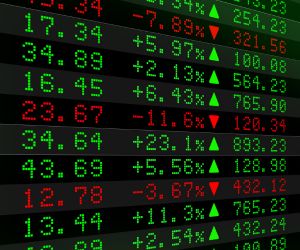PepsiCo, a giant in beverages and foods, continues to be one of the strongest stocks in the market due to its diversification and global presence. It is listed on the NASDAQ in New York, one of the most important centers for securities trading in the United States. Is it a good investment then? Are there ups and downs? What investment strategy should I use with this stock? This article will answer these questions and more.

Steps to Invest in PepsiCo
Research and Analysis:
PepsiCo is one of the largest food and beverage companies in the world, with iconic brands such as Pepsi, Lay’s, Gatorade, Quaker, and Tropicana. Evaluate its financial performance, expansion in emerging markets, and portfolio diversification with healthy products. Also, consider its competition with The Coca-Cola Company and global consumption trends.Opening an Investment Account:
PepsiCo is listed on the Nasdaq under the ticker PEP. To invest in its shares, you need to open an account with a brokerage that has access to the US market. Compare costs, commissions, and trading platforms before choosing a broker. Typically, you will be asked for a copy of a government ID and a utility bill (e.g., electricity or water) to verify your identity and address. Compare the commissions, trading platforms, and services offered by each brokerage to choose the one that best suits your needs.Define Investment Strategy:
PepsiCo is an attractive stock for both long-term investors and traders. Its stable business and generation of recurring income make it ideal for those seeking consistent dividends and moderate growth. Additionally, its diversification in snacks and beverages sets it apart from competitors focused only on soft drinks.Execution and Monitoring:
Monitor the company’s quarterly reports, focusing on revenue growth, expansion in emerging markets, and sustainability strategies. Factors such as changes in consumption habits, input costs (sugar, water, packaging), and acquisitions can affect stock performance.Portfolio Diversification:
PepsiCo belongs to the consumer staples sector, which is less volatile compared to technology or energy. Complement your investment with companies in the sector such as Coca-Cola (KO), Nestlé (NESN), Mondelez (MDLZ), or consumer ETFs like the XLP (Consumer Staples ETF).
SWOT Analysis of PepsiCo as an Investment
This SWOT analysis reviews the internal and external factors affecting the performance of PepsiCo, one of the largest food and beverage companies in the world. It identifies the Strengths and Weaknesses (internal factors) and Opportunities and Threats (external factors) that impact its position in the consumer goods sector.
Strengths:
Diversified portfolio: PepsiCo has a wide range of leading brands in food and beverages, which reduces dependence on a single product.
Global reach: The company has a presence in over 200 countries, diversifying its revenue sources and mitigating regional risks.
Innovation and adaptation: Its focus on developing new products and adapting to consumer trends (such as healthier options) allows it to remain competitive.
Economies of scale: PepsiCo's large size gives it advantages in supplier negotiations and production optimization.
Weaknesses:
Dependence on sugary beverages: Although it has diversified its portfolio, a large portion of its sales come from carbonated drinks, which face health concerns and changing consumer preferences.
Raw material costs: Fluctuations in the price of inputs (such as sugar or corn) can affect its profit margins.
Intense competition: In the food and beverage sector, there are strong global and local rivals competing for market share.
Opportunities:
Growth in healthy products: The demand for snacks and drinks with more balanced nutritional profiles can open new business lines and increase sales.
Expansion in emerging markets: Improving purchasing power in regions of Asia, Africa, and Latin America offers growth opportunities.
Innovation in sustainable packaging: The adoption of eco-friendly materials can attract environmentally conscious consumers and improve brand image.
Threats:
Stricter regulations: Taxes on sugary drinks or warning labels may affect consumption and operating costs.
Global economic fluctuations: Recessions or crises can reduce purchasing power and, therefore, demand for consumer goods.
Disruptive competition: Local brands, e-commerce companies, and new food trends can erode market share.
What is an International Stock Broker?
An International Stock Broker is the entity (or platform) that allows you to buy and sell shares of companies listed on stock exchanges in various countries around the world. Unlike a local brokerage firm, the main focus of International Brokers is on providing access to global markets, such as the U.S., European, or Asian markets.
Why do we need an International Stock Broker?
Investing in international stocks can be an excellent way to diversify your portfolio, as it gives you the opportunity to participate in the growth of economies and sectors around the world. However, operating in global markets is not as simple as doing so in the local market: it requires specific knowledge, compliance with international regulations, and the use of advanced trading platforms.
An International Stock Broker brings together all these investment opportunities in one place and allows you to access different exchanges and trading conditions, in exchange for a commission.
Examples and Comparisons:
There are several well-known International Stock Brokers, such as Interactive Brokers, eToro, TD Ameritrade, or Saxo Bank, among others. Each offers trading platforms with particular features and commissions that vary according to the service. Some stand out for providing advisory and market analysis in various languages, while others may offer more competitive operating costs or social investment tools. These details allow you to choose the option that best suits your needs and investment profile.
Regulatory and Security Aspects
It is essential that the International Stock Broker you choose is regulated by recognized entities in the country where it operates, such as the U.S. Securities and Exchange Commission (SEC) in the United States, the Financial Conduct Authority (FCA) in the United Kingdom, or the Securities Commission (CVM) in Brazil, among others. This oversight ensures that the broker complies with strict security and transparency standards, providing you with greater confidence when investing your money.
How do Brokers "connect" to International Markets?
Through agreements with foreign stock exchanges and the use of advanced technological platforms, International Stock Brokers process the buy and sell orders placed by their clients. They prioritize transactions based on price, arrival order, and other parameters, and charge a commission when the trade is executed. This technological infrastructure allows transactions to be carried out quickly and securely, facilitating real-time tracking of your investments.
In conclusion, an International Stock Broker is your gateway to the most important stock markets in the world. Thanks to their regulation, trading platforms, and knowledge of global markets, you will be able to diversify your portfolio and seek growth opportunities in different sectors and countries.





